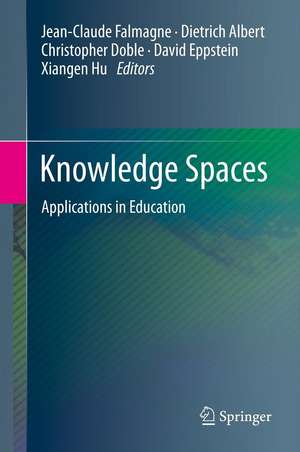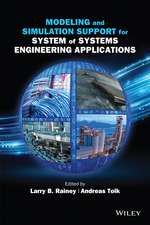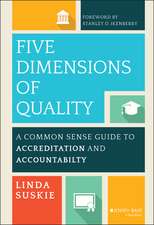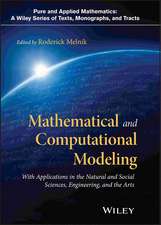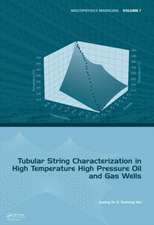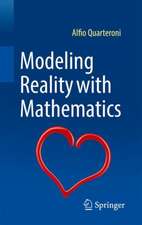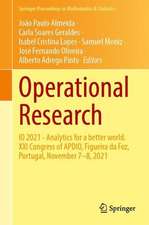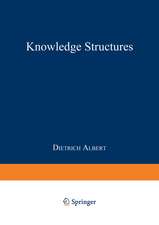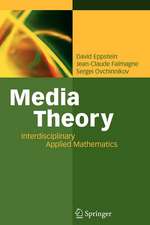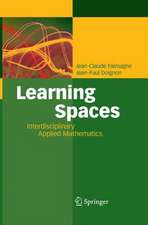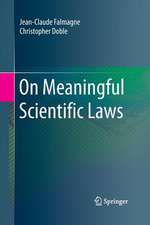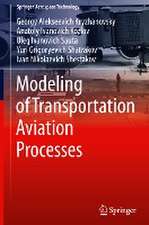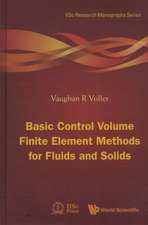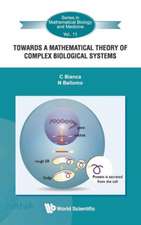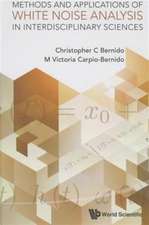Knowledge Spaces: Applications in Education
Editat de Jean-Claude Falmagne, Dietrich Albert, Christopher Doble, David Eppstein, Xiangen Huen Limba Engleză Hardback – 3 iul 2013
| Toate formatele și edițiile | Preț | Express |
|---|---|---|
| Paperback (1) | 643.84 lei 6-8 săpt. | |
| Springer Berlin, Heidelberg – 16 iul 2015 | 643.84 lei 6-8 săpt. | |
| Hardback (1) | 650.37 lei 6-8 săpt. | |
| Springer Berlin, Heidelberg – 3 iul 2013 | 650.37 lei 6-8 săpt. |
Preț: 650.37 lei
Preț vechi: 765.14 lei
-15% Nou
Puncte Express: 976
Preț estimativ în valută:
124.49€ • 135.27$ • 104.64£
124.49€ • 135.27$ • 104.64£
Carte tipărită la comandă
Livrare economică 21 aprilie-05 mai
Preluare comenzi: 021 569.72.76
Specificații
ISBN-13: 9783642353284
ISBN-10: 3642353282
Pagini: 360
Ilustrații: XII, 354 p. 65 illus., 15 illus. in color.
Dimensiuni: 155 x 235 x 30 mm
Greutate: 0.69 kg
Ediția:2013
Editura: Springer Berlin, Heidelberg
Colecția Springer
Locul publicării:Berlin, Heidelberg, Germany
ISBN-10: 3642353282
Pagini: 360
Ilustrații: XII, 354 p. 65 illus., 15 illus. in color.
Dimensiuni: 155 x 235 x 30 mm
Greutate: 0.69 kg
Ediția:2013
Editura: Springer Berlin, Heidelberg
Colecția Springer
Locul publicării:Berlin, Heidelberg, Germany
Public țintă
GraduateCuprins
Overview:- Assessing Mathematical Knowledge in a Learning Space.- ALEKS Based Placement at the University of Illinois.- A Potential Technological Solution in Reducing Achievement Gap Between White and Black Students.- Is There a Relationship Between Interacting with a Mathematical Intelligent Tutoring System and Students Performance on Standardized High-Stake Tests?.- Using Knowledge Space Theory To Assess Student Understanding of Chemistry.- Mathematical Compendium.- Heuristics for Generating and Validating Surmise Relations across, between, and within Sets.- Recent Developments in Competence-based Knowledge Space Theory.- Recent Developments in Performance-based Knowledge Space Theory.- Skills, Competencies and Knowledge Structures.- Learning Sequences.- Index.- Reference.
Recenzii
From the reviews:
“The editors of this book have compiled a set of papers that provide insight into knowledge space theory and related practical deployment issues. … anyone involved in a learning discipline will find this book to be a helpful guide to the terms, issues, and theory development of knowledge spaces. I recommend it for researchers and practitioners willing to improve their understanding of current knowledge space theory and the possibilities for its deployment.” (F. J. Ruzic, Computing Reviews, November, 2013)
“The editors of this book have compiled a set of papers that provide insight into knowledge space theory and related practical deployment issues. … anyone involved in a learning discipline will find this book to be a helpful guide to the terms, issues, and theory development of knowledge spaces. I recommend it for researchers and practitioners willing to improve their understanding of current knowledge space theory and the possibilities for its deployment.” (F. J. Ruzic, Computing Reviews, November, 2013)
Notă biografică
Dietrich Albert is an emeritus professor of Cognitive Psychology at the University of Graz and a senior scientist in Knowledge Management at the Graz University of Technology (Austria, Europe). His R&D interests cover several areas, including learning, memory, decision making, anxiety, knowledge and competences.
Chris Doble is the Math Content Development Manager at ALEKS Corporation. Along with his focus on using technology in the teaching and learning of mathematics, he maintains academic interests and publishes in measurement theory and psychophysics.
Jean-Claude Falmagne is an emeritus professor of Cognitive Sciences at the University of California, Irvine. His research interests focus on the application of mathematics to educational technology, psychophysics, choice theory, and philosophy of sciences, in particular measurement theory.
David Eppstein is a professor of Computer Sciences at the University of California, Irvine. His research focuses on the design and analysis of algorithms, and especially graph algorithms and computational geometry.
Xiangen Hu is a professor in the Department of Psychology at The University of Memphis. His research interests include General Processing Tree (GPT) models, categorical data analysis, knowledge representation, computerized tutoring, and advanced distributed learning.
Chris Doble is the Math Content Development Manager at ALEKS Corporation. Along with his focus on using technology in the teaching and learning of mathematics, he maintains academic interests and publishes in measurement theory and psychophysics.
Jean-Claude Falmagne is an emeritus professor of Cognitive Sciences at the University of California, Irvine. His research interests focus on the application of mathematics to educational technology, psychophysics, choice theory, and philosophy of sciences, in particular measurement theory.
David Eppstein is a professor of Computer Sciences at the University of California, Irvine. His research focuses on the design and analysis of algorithms, and especially graph algorithms and computational geometry.
Xiangen Hu is a professor in the Department of Psychology at The University of Memphis. His research interests include General Processing Tree (GPT) models, categorical data analysis, knowledge representation, computerized tutoring, and advanced distributed learning.
Textul de pe ultima copertă
The book describes up-to-date applications and relevant theoretical results. These applications come from various places, but the most important one, numerically speaking, is the internet based educational system ALEKS. The ALEKS system is bilingual English-Spanish and covers all of mathematics, from third grade to the end of high school, and chemistry. It is also widely used in higher education because US students are often poorly prepared when they reach the university level. The chapter by Taagepera and Arasasingham deals with the application of knowledge spaces, independent of ALEKS, to the teaching of college chemistry. The four chapters by Albert and his collaborators strive to give cognitive interpretations to the combinatoric structures obtained and used by the ALEKS system. The contribution by Eppstein is technical and develops means of searching the knowledge structure efficiently.
Caracteristici
The combinatoric and stochastic search engine described in the book monitors a unique knowledge assessment mechanism that produces the exact list of concepts that the student is ready to learn This technology is meant to replace psychometric techniques and models that are the basis for current standardized testing The technology is the basis of the ALEKS system, which has been used successfully by millions of students in the US and abroad in both K12 and higher education
